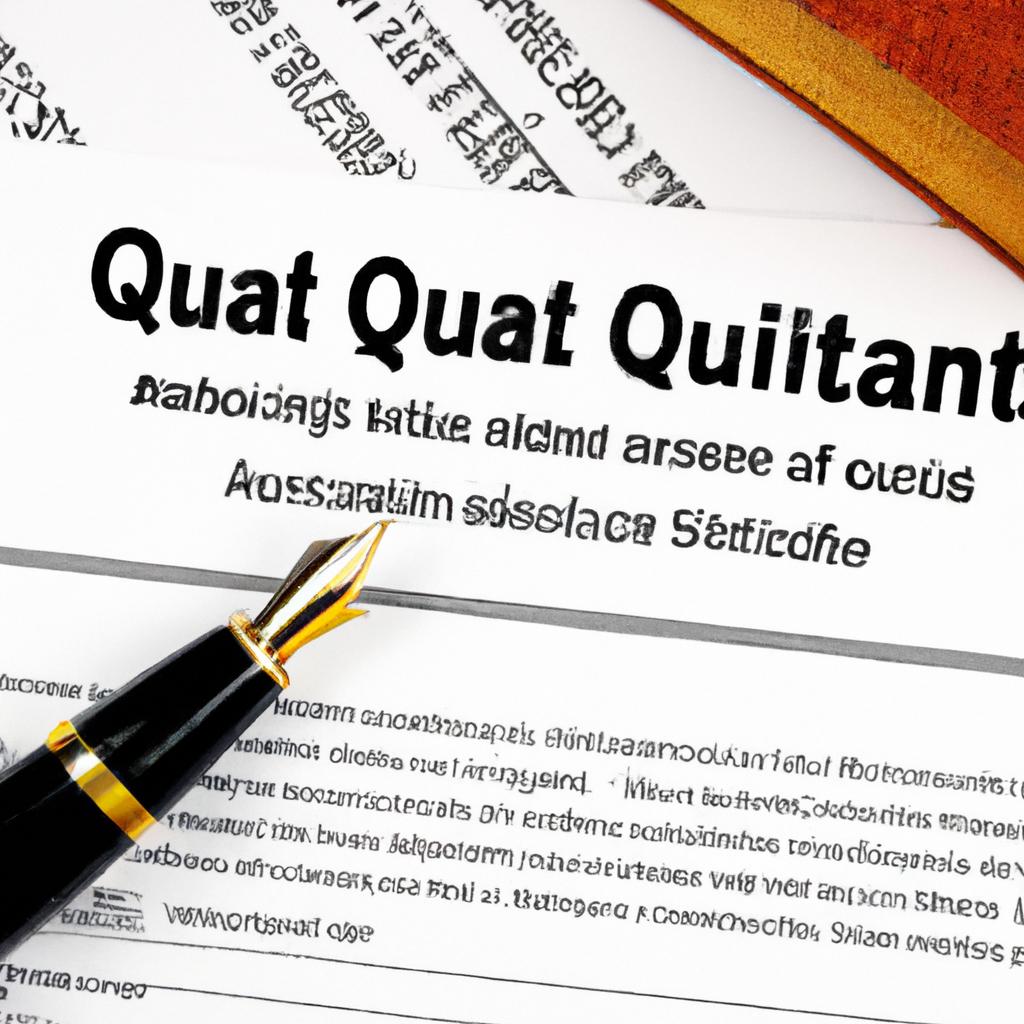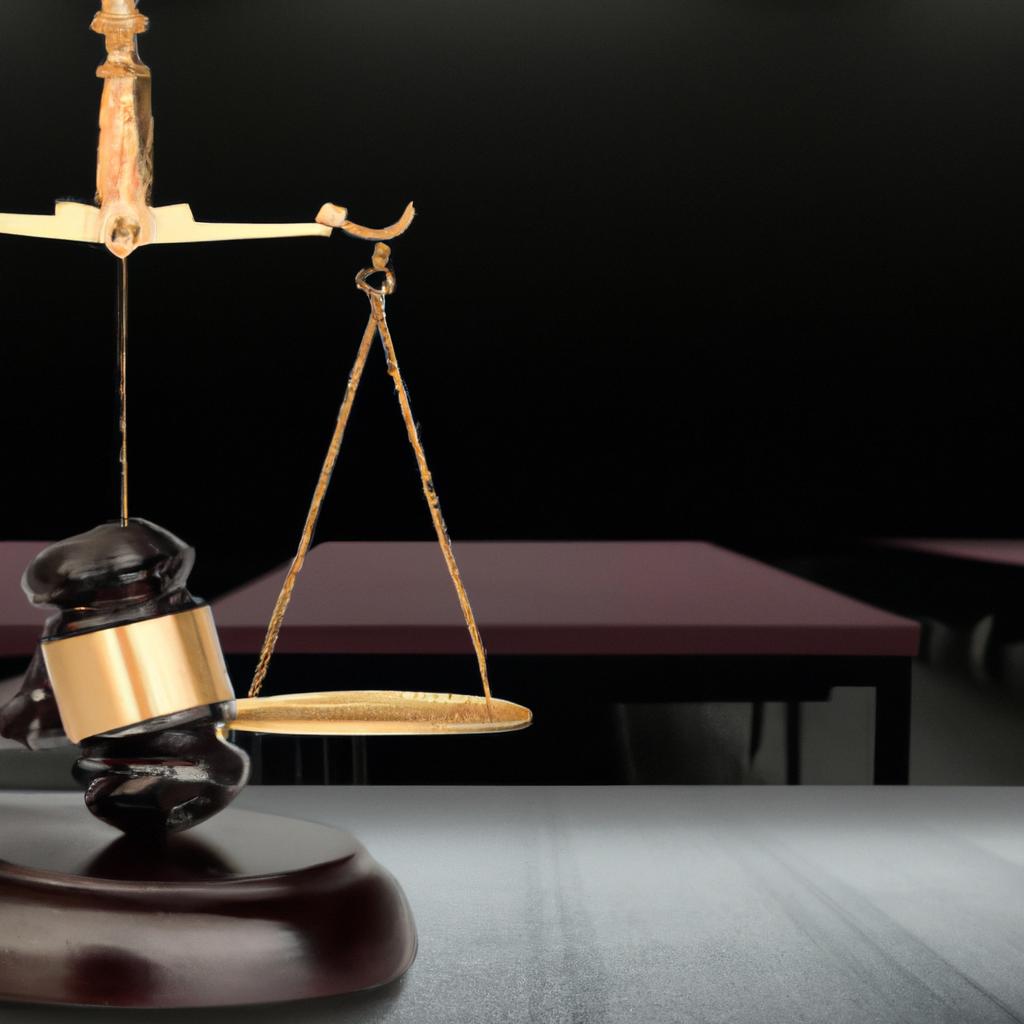Navigating the complexities of real estate transactions following the passing of a loved one can be a daunting task. In the realm of estate planning, the quitclaim deed after death is a crucial instrument that allows for the seamless transfer of property ownership. At Morgan Legal Group in New York City, our team of experienced attorneys specializes in estate planning, probate, elder law, Wills, and trusts, providing expert guidance in navigating the intricacies of post-mortem property transfers. Join us as we delve into the intricacies of quitclaim deeds after death, unraveling the legal implications and processes involved in ensuring a smooth transition of property ownership.
Understanding the Process of Transferring Property with a Quitclaim Deed After Death
When it comes to transferring property with a quitclaim deed after death, it’s important to understand the process involved to ensure a smooth transition of ownership. A quitclaim deed is a legal document used to transfer interest in real estate from one party to another without any warranties or guarantees of title. In the event of death, the property owner’s estate may need to use a quitclaim deed to transfer ownership to heirs or beneficiaries.
Before proceeding with a quitclaim deed after death, it’s crucial to consider the following steps:
- Identifying the legal heirs or beneficiaries of the property
- Obtaining a certified copy of the death certificate
- Completing the quitclaim deed with accurate information
- Filing the quitclaim deed with the county clerk’s office

Potential Challenges and Pitfalls of Utilizing a Quitclaim Deed in Estate Planning
When it comes to utilizing a quitclaim deed in estate planning, there are several potential challenges and pitfalls that individuals should be aware of. One major concern is that a quitclaim deed does not guarantee clear title to the property being transferred. This means that there could be hidden defects or claims on the property that the grantor may not be aware of, leading to potential disputes or legal issues down the line.
Another challenge is that using a quitclaim deed may not provide the same level of protection as other types of deeds, such as a warranty deed. In the event of the grantor’s death, beneficiaries may face difficulties in proving their ownership of the property or defending against competing claims. It is important to consult with an experienced estate planning attorney to understand the risks and benefits of using a quitclaim deed in your estate plan.

Strategies for Ensuring a Smooth and Effective Transfer of Property Through a Quitclaim Deed
When navigating the transfer of property through a quitclaim deed after death, it is crucial to follow certain strategies to ensure a smooth and effective process. One key strategy is to meticulously review the deed itself to confirm that it meets all legal requirements and accurately reflects the intentions of the parties involved. This includes verifying the correct legal description of the property, ensuring that all necessary signatures are present, and confirming that the deed has been properly notarized.
Another important strategy is to communicate openly and effectively with all parties involved in the transfer. This includes informing beneficiaries of their rights and responsibilities, discussing any potential disputes or concerns, and maintaining clear and thorough documentation throughout the process. By following these strategies, you can help facilitate a seamless transfer of property through a quitclaim deed after death, ensuring that the wishes of the deceased are carried out in a timely and lawful manner.

Consulting with a Knowledgeable Estate Planning Attorney to Navigate the Use of Quitclaim Deeds After Death
Estate planning can be a complex process, especially when it comes to navigating the implications of quitclaim deeds after death. Consulting with a knowledgeable estate planning attorney is crucial to ensure that your assets are properly transferred according to your wishes. A skilled attorney can provide guidance on the use of quitclaim deeds in your estate plan and help you avoid potential pitfalls.
When it comes to quitclaim deeds after death, there are a number of factors to consider:
- Understanding the legal implications of using a quitclaim deed in your estate plan
- Evaluating how a quitclaim deed may impact the distribution of your assets
- Ensuring that the quitclaim deed is properly executed and recorded
Q&A
Q: What is a quit claim deed after death?
A: A quit claim deed after death is a legal document that transfers ownership of a property from the deceased person to another party, typically a beneficiary or heir.
Q: How is a quit claim deed different from a regular deed?
A: A quit claim deed is different from a regular deed in that it does not guarantee that the property is free from defects in title. It simply transfers whatever interest the deceased person had in the property to the new owner.
Q: Can a quit claim deed be used to avoid probate?
A: Yes, a quit claim deed can be used to avoid probate in certain cases, as it allows for a direct transfer of ownership without going through the probate process. However, this may not be advisable in all situations, as probate can have other benefits such as resolving disputes and ensuring creditors are paid.
Q: Who can execute a quit claim deed after death?
A: Typically, a person designated in the deceased’s will as the executor of their estate will have the authority to execute a quit claim deed after death. If there is no will, the court may appoint an administrator to handle the deceased person’s affairs.
Q: Are there any risks associated with using a quit claim deed after death?
A: Yes, there are risks associated with using a quit claim deed after death, as the new owner may not be aware of any hidden defects in the property’s title. It is important to consult with a legal professional before proceeding with a quit claim deed to ensure that all potential issues are addressed.
To Conclude
In conclusion, a quitclaim deed can be a useful tool to transfer property ownership after death, but it is important to understand the potential implications and limitations of using this type of deed. Consulting with a legal professional is always recommended to ensure that the transfer of property is done correctly and in accordance with state laws. Thank you for reading and we hope this article has shed some light on the topic of quitclaim deeds after death.

